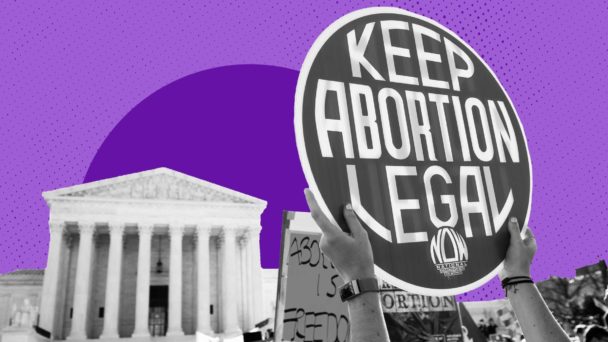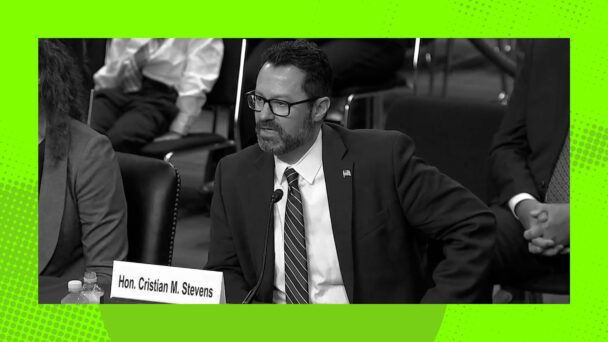When the Supreme Court overturned Roe v. Wade in 2022, rescinding the constitutional right to abortion care after nearly fifty years, the five justices in the majority insisted that their motives were noble. In his opinion in Dobbs v. Jackson Women’s Health Organization, Justice Samuel Alito wrote that the decision would empower “the people and their elected representatives,” and allow “women on both sides of the abortion issue” to “affect the legislative process.”
Conservative government officials, however, appear to have missed that memo.
In Florida, nearly one million voters have signed a petition to get a proposal on the fall 2024 ballot to protect abortion rights under the state constitution. But the state’s Republican Attorney General has asked the state’s supreme court to keep the proposed amendment off the ballot. And when the Florida Supreme Court heard oral argument on February 7, Chief Justice Carlos Muñiz repeatedly suggested that “the unborn”—a fetus, an embryo, or even a zygote—could be a “person” with equal and unalienable rights under law, thus creating a conflict with the proposed amendment.
Neither party before the court briefed such an argument. But the Florida constitution declares that “all natural persons are equal before the law,” which Muñiz thought was ambiguous. “I don’t know that I could affirmatively say that the term ‘natural person,’ as a matter of just ordinary meaning, doesn’t include the unborn,” he said.

Muñiz shortly after Governor Ron DeSantis announced his appointment to the Florida Supreme Court, 2019 (Screencap via YouTube)
Muñiz was speaking the language of “fetal personhood,” the next frontier in the anti-choice movement. As Lisa Needham has explained, its adoption anywhere would have catastrophic consequences. Under this theory, championed by conservative legal movement darlings like Jonathan Mitchell and the Heritage Foundation, fertilized eggs would suddenly have Fourteenth Amendment rights. Women’s behavior would become subject to all kinds of legal limitations to guard against potential “endangerment” of the “person” that might otherwise grow inside them.
Lawmakers, courts, and cops have no idea whether a cluster of cells the size of poppyseed is making its way towards anyone’s uterus. Protecting its alleged rights would necessarily require the constant surveillance and control of anyone who can get pregnant.
Florida isn’t the only place trying to cut off channels of self-governance that could be used to further reproductive rights. In Ohio, when residents planned to directly amend the state’s constitution to protect abortion access, Republican legislators tried to make amendments more difficult by requiring a supermajority vote. The measure failed, and Ohio voters passed the amendment in November 2023. In Mississippi, an all-male group of Republican lawmakers pushed a proposal to allow residents to pursue ballot initiatives on any subject but abortion. The Mississippi House passed the resolution last month.
Florida, for its part, is true to this, not new to this: When Floridians overwhelmingly voted to re-enfranchise people with felony convictions back in 2018, Republican legislators created new barriers to keep them from voting anyway. When democracy yields outcomes Republicans don’t like, Republicans discard democracy.
These attempts to prevent the public from protecting a right to abortion care reflects the irreconcilable tension between the conservative legal movement’s words and deeds. Republicans have no intention of letting women make decisions about their bodies, and are in fact looking for more legal ways to expand government control. This scenario is a far cry from the constructive debate among equals imagined in Dobbs. The only people the Court empowered are other Republican judges and politicians.




